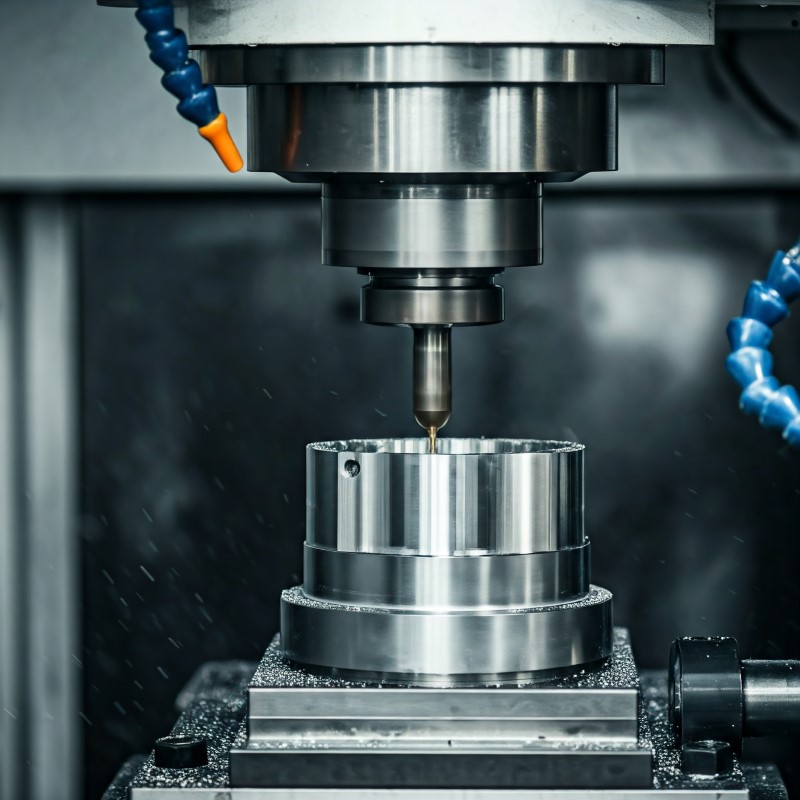- Time:2024/12/20 Posted:Dongguan Quality Innovation And Technology Co.,Ltd
Precision CNC milling is a manufacturing process that uses computer numerical control (CNC) machines to remove material from a workpiece. This process is used to create a wide variety of parts, from simple to complex. Precision CNC milling is a highly accurate and versatile process that can be used to create parts with very tight tolerances.

Advantages of precision CNC milling
Precision CNC milling has a number of advantages over other manufacturing processes, including:
High accuracy: Precision CNC milling can produce parts with tolerances as tight as 0.0001 inches.
High efficiency: CNC machines can produce parts quickly and efficiently.
Versatility: Precision CNC milling can be used to create a wide variety of parts, from simple to complex.
Repeatability: CNC machines can produce parts with consistent quality, which is important for many applications.
Cost-effectiveness: Precision CNC milling can be a cost-effective way to produce parts, especially in large quantities.
Process flow of precision CNC milling
The process flow of precision CNC milling typically involves the following steps:
Design: The first step is to design the part using CAD software.
Programming: The CAD data is then used to create a CNC program.
Setup: The CNC machine is set up with the appropriate tools and fixtures.
Machining: The CNC machine cuts the material according to the CNC program.
Inspection: The finished part is inspected to ensure that it meets the specifications.
Material selection for precision CNC milling
The material used for precision CNC milling depends on the application of the part. Some of the most common materials used include:
Aluminum: Aluminum is a lightweight and strong material that is often used in aerospace and automotive applications.
Steel: Steel is a durable and strong material that is often used in industrial applications.
Titanium: Titanium is a lightweight and strong material that is often used in medical and aerospace applications.
Plastic: Plastic is a versatile material that can be used for a wide variety of applications.
Applications of precision CNC milling
Precision CNC milling is used in a wide variety of industries, including:
Aerospace: Precision CNC milling is used to create parts for aircraft and spacecraft.
Automotive: Precision CNC milling is used to create parts for cars and trucks.
Medical: Precision CNC milling is used to create parts for medical devices.
Electronics: Precision CNC milling is used to create parts for electronic components.
Industrial: Precision CNC milling is used to create parts for a variety of industrial applications.
Future trends in precision CNC milling
Precision CNC milling is a rapidly evolving technology. Some of the future trends in precision CNC milling include:
Higher accuracy: CNC machines are becoming even more accurate, allowing for the production of even more precise parts.
Faster machining: CNC machines are becoming faster, which will allow for the production of parts in even less time.
Greater automation: CNC machines are becoming more automated, which will allow for even less human intervention.
Integration with other technologies: CNC machines are being integrated with other technologies, such as additive manufacturing and robotics.
Precision CNC milling is a powerful tool that can be used to create a wide variety of parts. It is a versatile and cost-effective process that is becoming increasingly important in a wide range of industries. As precision CNC milling technology continues to evolve, it is likely to become even more widely used in the future.
